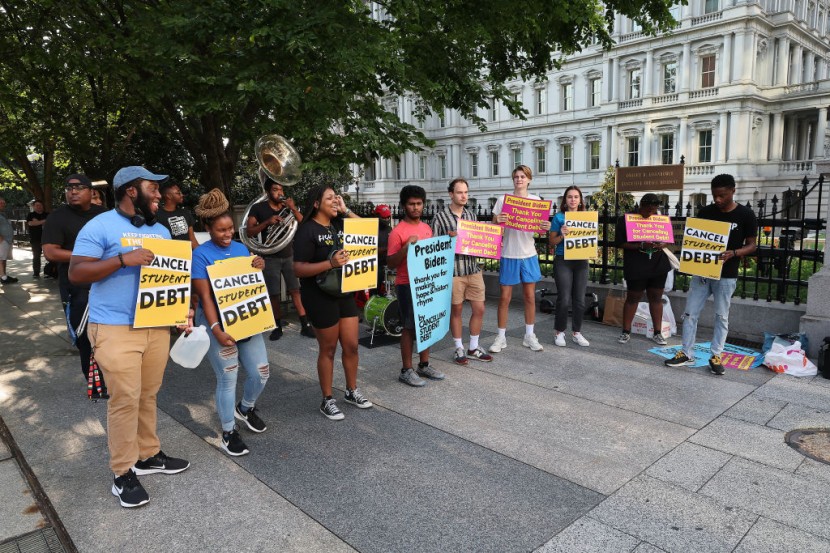
According to a Congressional Budget Office report issued on Monday, President Joe Biden's decision to cancel student loan debt for millions of students and impose a moratorium on loan repayments will cost the federal government $420 billion.
Biden's executive order from August, which waived up to $20,000 in student loan debt for Pell grant recipients and $10,000 for other students, is expected to cost nearly $400 billion, according to the nonpartisan CBO.
CBO: Student Loan Forgiveness Plan's Budget is 'Highly Uncertain'
The CBO report estimates that Biden's decision to prolong the moratorium on student loan payments until the end of the year will add $20 billion to the cost. CBO Director Phillip Swagel said it's unknown how much student loan borrowers would have paid back if the unilateral action had not been taken compared to how much they will pay back under Biden's action. The CBO warned such estimations are "highly uncertain."
Per USA Today, Republican legislators demanded the CBO's formal budget "score" on Biden's contentious choice to utilize his authority to waive student loan debt. The Biden administration predicted last month that the president's debt cancellation would result in a $24 billion average yearly reduction in loan repayments collected by the government over the next ten years.
However, the CBO estimated the cost over the course of the 30-year loans. The prediction made by the White House also assumes that 75% of Americans who qualify and have federal student loan debt would take part. A higher application rate of 90% among qualified borrowers would result in lower loan repayments to the government.
Senior Biden administration officials who spoke with reporters about the CBO score on the condition of anonymity did not contest the $400 billion amount but said that 90% participation would be above average for programs of a similar standard funded by the federal government.
In fact, according to officials, the CBO's calculations nearly match the White House's yearly cost estimate of $24 billion. Officials also mentioned factors including interest rates, salary growth, and various borrower repayment alternatives as potential cost-changing factors.
According to the CBO, 95% of the 37 million borrowers who have direct loans from the federal government qualify for debt cancellation based on their income. Borrowers must have household incomes of no more than $250,000 and incomes of no more than $125,000. The CBO estimates that 45% of people who have federal student loan debt will have it completely forgiven.
GOP, Americans Oppose Biden's Student Loan Cancellation Plan
Prior to the midterm elections, Republicans criticized Biden's student loan forgiveness as a costly political tactic that would benefit privileged college students at the expense of working-class Americans who did not attend college.
Sen. Richard Burr of North Carolina, the ranking Republican on the Senate Committee on Health, Education, Labor and Pensions, and Rep. Virginia Foxx of North Carolina, the head Republican on the House Committee on Labor and Education, both requested the CBO's assessment.
Meanwhile, a recent Cato Institute poll found that if President Biden's student loan "forgiveness" resulted in higher taxes, more over 60% of Americans would be against it. According to the study, 64% of American adults favor the federal government "forgiving" up to $10,000 in federal student loan debt for those who make less than $150,000 per year or less than $300,000 for married couples in order to qualify for the program.
The Cato Institute said in a statement that "support for canceling federal student loan debt plummets when Americans evaluate its trade-offs." Sixty-four percent of Americans oppose waiving $10,000 in debt for each borrower if it increases their taxes, and 68% would object if it mostly benefited individuals with higher incomes.
In contrast, 71% of respondents would oppose debt forgiveness if it resulted in "credential inflation," where more employers demand college degrees even when they are not required to perform a job. Seventy-six percent of respondents would oppose student debt "cancellation" if it led to universities raising their tuition and fees, National Review via Yahoo reported.
@YouTube
© 2025 HNGN, All rights reserved. Do not reproduce without permission.








